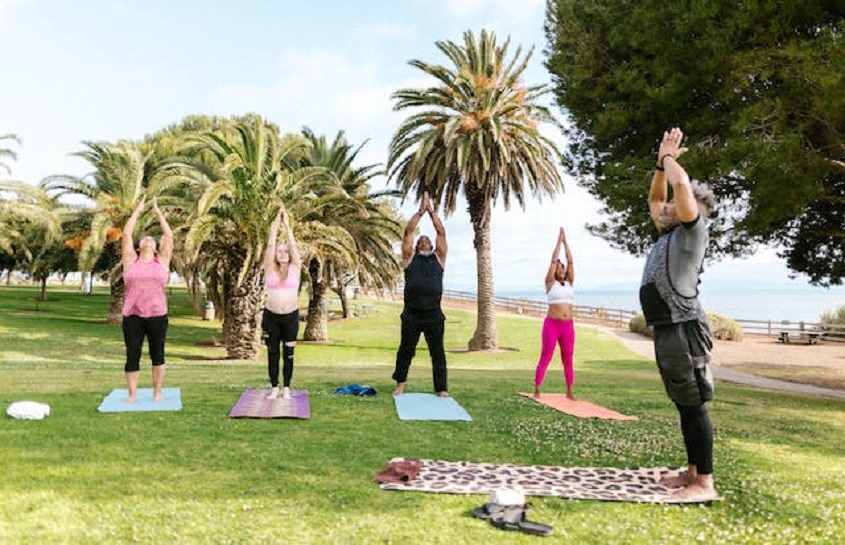As individuals age, their health needs evolve, and it becomes crucial to address specific concerns that may arise with aging. The elderly population often faces various health challenges that can impact their quality of life. In this article, we will explore five common elderly health concerns, including the often-overlooked issue of hemorrhoids, and discuss effective strategies for managing and improving overall well-being.
1. Cardiovascular Health: The Heart of the Matter
Cardiovascular issues are prevalent among the elderly, posing a significant threat to their well-being. Conditions such as heart disease, high blood pressure, and atherosclerosis become more common as people age. To manage cardiovascular health, seniors should adopt heart-friendly lifestyles.
Lifestyle Changes:
- Healthy Diet: Encourage a diet rich in fruits, vegetables, whole grains, and lean proteins while minimizing saturated fats and sodium intake.
- Regular Exercise: Incorporate moderate-intensity aerobic exercises like walking, swimming, or cycling to enhance heart health.
- Routine Check-ups: Regular medical check-ups help monitor blood pressure, cholesterol levels, and overall cardiovascular health.
2. Hemorrhoids: Addressing the Unspoken Discomfort
Hemorrhoids, though often a taboo topic, are a common concern among the elderly. These swollen blood vessels in the rectum and anus can cause discomfort, itching, and bleeding. Managing hemorrhoids involves both lifestyle changes and medical interventions.
Management Strategies:
- Fiber-rich Diet: Increase fiber intake through fruits, vegetables, and whole grains to promote regular bowel movements and prevent straining.
- Hydration: Stay well-hydrated to soften stools, making them easier to pass and reducing the risk of hemorrhoid flare-ups.
- Topical Treatments: Over-the-counter hemorrhoid creams and ointments can provide relief from symptoms, while medicated wipes soothe irritation.
- Warm Baths: Soaking in a warm bath can alleviate pain and discomfort associated with hemorrhoids.
3. Osteoporosis: Strengthening Bones for a Solid Foundation
Osteoporosis, characterized by weakened and porous bones, is a common concern as individuals age. The risk of fractures increases, making bone health a priority for seniors.
Bone-Strengthening Measures:
- Calcium and Vitamin D: Ensure an adequate intake of calcium and vitamin D through diet or supplements to support bone density.
- Weight-Bearing Exercises: Engage in weight-bearing activities like walking, dancing, or weightlifting to strengthen bones and reduce the risk of fractures.
- Fall Prevention: Implement measures to prevent falls, such as removing hazards at home and maintaining good lighting.
- ACL Reconstruction: ACL reconstruction is a surgical procedure to repair a torn knee ligament, promoting stability and function through weight-bearing exercises, muscle strengthening, and bone health promotion.
4. Cognitive Decline: Nurturing Brain Health
Cognitive decline, including conditions like dementia and Alzheimer’s disease, is a significant concern among the elderly. Maintaining brain health is essential for preserving cognitive function.
Cognitive Health Strategies:
- Mental Stimulation: Engage in activities that challenge the brain, such as puzzles, games, and learning new skills.
- Social Interaction: Stay socially active to foster connections and reduce the risk of isolation, which can contribute to cognitive decline.
- Healthy Diet: Consume a diet rich in antioxidants, omega-3 fatty acids, and vitamins to support brain health.
- Regular Exercise: Physical activity has been linked to cognitive benefits, so incorporate exercises that get the heart pumping.
5. Diabetes: Managing Blood Sugar Levels
Diabetes becomes more prevalent with age, requiring careful management to prevent complications. Both type 1 and type 2 diabetes can impact the elderly, making blood sugar control a crucial aspect of overall health.
Diabetes Management:
- Balanced Diet: Monitor carbohydrate intake and opt for a balanced diet that includes whole grains, fruits, vegetables, and lean proteins.
- Regular Monitoring: Keep track of blood sugar levels regularly, and follow the prescribed treatment plan, which may include medications or insulin.
- Physical Activity: Regular exercise helps control blood sugar levels and contributes to overall well-being.
- Foot Care: Diabetes can affect the feet, so proper foot care is essential to prevent complications.
In conclusion, addressing common health concerns among the elderly involves a holistic approach encompassing lifestyle modifications, regular medical check-ups, and proactive management strategies. By prioritizing these aspects, seniors can enhance their quality of life and enjoy their golden years with optimal health and well-being.

